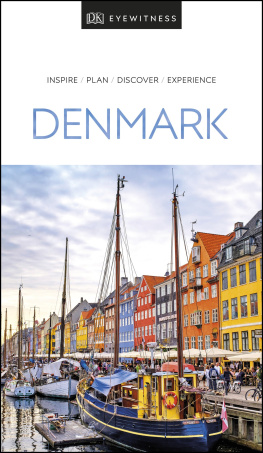Saxo Grammaticus - The Danish History, Books I-IX
Here you can read online Saxo Grammaticus - The Danish History, Books I-IX full text of the book (entire story) in english for free. Download pdf and epub, get meaning, cover and reviews about this ebook. year: 2008, publisher: IndyPublish, genre: Detective and thriller. Description of the work, (preface) as well as reviews are available. Best literature library LitArk.com created for fans of good reading and offers a wide selection of genres:
Romance novel
Science fiction
Adventure
Detective
Science
History
Home and family
Prose
Art
Politics
Computer
Non-fiction
Religion
Business
Children
Humor
Choose a favorite category and find really read worthwhile books. Enjoy immersion in the world of imagination, feel the emotions of the characters or learn something new for yourself, make an fascinating discovery.
- Book:The Danish History, Books I-IX
- Author:
- Publisher:IndyPublish
- Genre:
- Year:2008
- Rating:4 / 5
- Favourites:Add to favourites
- Your mark:
The Danish History, Books I-IX: summary, description and annotation
We offer to read an annotation, description, summary or preface (depends on what the author of the book "The Danish History, Books I-IX" wrote himself). If you haven't found the necessary information about the book — write in the comments, we will try to find it.
Forasmuch as all other nations are wont to vaunt the glory of their achievements, and reap joy from the remembrance of their forefathers: Absalon, Chief Pontiff of the Danes, whose zeal ever burned high for the glorification of our land, and who would not suffer it to be defrauded of like renown and record, cast upon me, the least of his followers -- since all the rest refused the task -- the work of compiling into a chronicle the history of Denmark, and by the authority of his constant admonition spurred my weak faculty to enter on a labour too heavy for its strength. For who could write a record of the deeds of Denmark? It had but lately been admitted to the common faith: it still languished as strange to Latin as to religion. But now that the holy ritual brought also the command of the Latin tongue, men were as slothful now as they were unskilled before, and their sluggishness proved as faultful as that former neediness. Thus it came about that my lowliness, though perceiving itself too feeble for the aforesaid burden, yet chose rather to strain beyond its strength than to resist his bidding; fearing that while our neighbours rejoiced and transmitted records of their deeds, the repute of our own people might appear not to possess any written chronicle, but rather to be sunk in oblivion and antiquity. Thus I, forced to put my shoulder, which was unused to the task, to a burden unfamiliar to all authors of preceding time, and dreading to slight his command, have obeyed more boldly than effectually, borrowing from the greatness of my admonisher that good heart which the weakness of my own wit denied me.
And since, ere my enterprise reached its goal, his death outran it; I entreat thee chiefly, Andrew, who wast chosen by a most wholesome and accordant vote to be successor in the same office and to headship of spiritual things, to direct and inspire my theme; that I may baulk by the defence of so great an advocate that spiteful detraction which ever reviles what is most conspicuous. For thy breast, very fruitful in knowledge, and covered with great store of worshipful doctrines, is to be deemed a kind of shrine of heavenly treasures. Thou who hast searched through Gaul and Italy and Britain also in order to gather knowledge of letters and amass them abundantly, didst after thy long wandering obtain a most illustrious post in a foreign school, and proved such a pillar thereof, that thou seemedst to confer more grace on thy degree than it did on thee. Then being made, on account of the height of thy honours and the desert of thy virtues, Secretary to the King, thou didst adorn that employment, in itself bounded and insignificant, with such works of wisdom as to leave it a piece of promotion for men of greatest rank to covet afterwards, when thou wert transferred to that office which now thou holdest. Wherefore Skaane has been found to leap for joy that she has borrowed a Pontiff from her neighbours rather than chosen one from her own people; inasmuch as she both elected nobly and deserved joy of her election. Being a shining light, therefore, in lineage, in letters, and in parts, and guiding the people with the most fruitful labours of thy teaching, thou hast won the deepest love of thy flock, and by thy boldness in thy famous administration hast conducted the service thou hast undertaken unto the summit of renown. And lest thou shouldst seem to acquire ownership on the strength of prescription, thou hast, by a pious and bountiful will, made over a very rich inheritance to Holy Church; choosing rather honourably to reject riches (which are covered with the rust of cares) than to be shackled with the greed of them and with their burden.
Saxo Grammaticus: author's other books
Who wrote The Danish History, Books I-IX? Find out the surname, the name of the author of the book and a list of all author's works by series.









